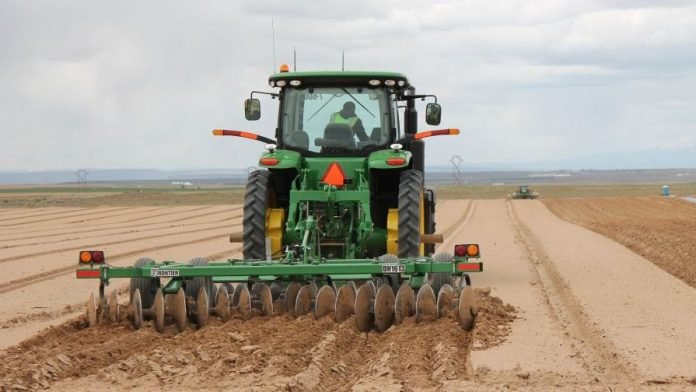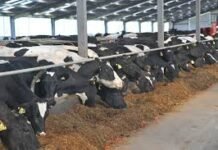Last Updated on June 11, 2024 by Asfa Rasheed
So you finally did it—you’ve purchased your own land and have become a farmer. It may be idyllic and straight out of Little House on the Prairie, but it can also come with a lot of significant dangers and physical hazards. Here are some examples:
- As the world gets warmer and warmer, farms are more vulnerable to fires, especially during seasons of drought. Add heatwaves into the mix, and you can be sure that the farm will always experience some level of risk for wildfires. Moreover, many materials on the farm are highly combustible—materials like straw, hay, bedding materials, paints, pesticides, cobwebs, grain dust, horse blankets, fertilizers, and others.
- Because farms don’t often have gates or clear demarcation lines, you never know when a stranger can appear on your property. There is always a significant risk for trespassing or other home invasion crimes.
- It comes with significant health risks. Farmers and farm workers are often exposed to environmental hazards and toxins. This can cause respiratory diseases, skin illnesses, noise-induced hearing losses, certain types of cancers, heat-related conditions, and exposure to chemical toxicity.
- Farmers are always operating heavy machinery, and while these big pieces of equipment are often safe, we never know when they can suddenly malfunction and cause accidents.
- Farmers are more exposed to wild animals, which means they are always at risk for more diseases or being attacked by them.
Farm living may be idyllic and a dream come true for many, but it can also come with many safety hazards. Here are some precautions and measures you can take to protect yourself and your family from physical harm or danger while living on a farm.
Table of Contents
Lower your risk of fires
Because we never know when a wildfire might take place, whether through natural means or otherwise, you need to place plenty of reliable safeguards to ensure that you have a fighting chance should a fire break out in the area. Aside from your smoke alarms and fire extinguishers, here are some examples of investments you need to make:
- Make sure you and your family members have fire-protective clothes and other personal protective equipment, especially if you’re doing some fire-related tasks, like slash-and-burn agriculture.
- Properly secure highly flammable materials and accelerants like oil, gasoline, paint thinner, aerosol cans, etc. Invest in approved containers and label them properly, and the list should be hidden in the office, not in the building where these accelerants are stored.
- Make sure ignition sources like motors, heaters, electrical fixtures, broken glass, cigarettes, matches, and others are appropriately disposed of, turned off, and extinguished before you leave the area.
- Mind the roadways and access to your farm as well. Make sure the driveways are wide and bump-free and that the shrubs and trees are properly trimmed at all times. Ensure that the gates are big enough to allow for trucks and heavy machinery to enter the premises without incident and that you have emergency lanes around all the structures and buildings. You also need to find ways to ensure that nothing will block entry to your property should emergency vehicles and firetrucks need to enter the premises.
- Check the construction of your structures, especially your barns, where your horses and livestock are being taken care of. Make sure that these constructions abide by the town’s building codes. One thing you need to know about this process is that insurance companies in the U.S. tend to lower premiums if you incorporate more fire-safety precautions when you construct your building, so don’t hesitate to add more safeguards in place.
Additional tips
- Consider installing a heavy-duty gate and fence to your main house to protect against intruders and wild animals. Add some security cameras as well, especially if your kids tend to wander around the property.
- Train everyone working on the farm to wear the proper personal protective equipment (PPE) every time they have to do tasks that require them to handle chemicals.
- Get the proper training for operating heavy machinery. Don’t just assume you and your people are natural at operating a tractor; it’s significantly different from driving a regular car. Even if the U.S. does not require licenses for driving many of these pieces of machinery, you owe it to yourself, your family, and workers to ensure that everyone is adequately trained before they operate them.
Overview
Living on a farm can be a wonderful experience, but it also comes with its own unique set of risks and dangers. In order to ensure the safety of everyone on the farm, it is important to take certain precautions and implement safety measures. Here are some important safety precautions to consider when living on a farm:
- Farm Equipment Safety: Farm equipment can be dangerous if not used properly. Always read and follow the manufacturer’s instructions before operating any equipment. Make sure all machinery is properly maintained and repaired as needed. When operating machinery, wear appropriate personal protective equipment (PPE) such as gloves, boots, and safety glasses.
- Animal Safety: Livestock can be unpredictable and dangerous. Always be cautious around animals, and never turn your back on them. Install secure fencing and gates to keep animals from escaping or wandering into areas where they do not belong. Keep a safe distance from large animals and use caution when handling them.
- Chemical Safety: Pesticides, herbicides, and other chemicals used on the farm can be harmful if not used properly. Always follow the manufacturer’s instructions and wear appropriate PPE when handling chemicals. Store chemicals in a secure area away from animals and children.
- Electrical Safety: Farms often have electrical systems for lighting, irrigation, and other purposes. Ensure that all electrical systems are installed and maintained by a licensed electrician. Do not touch electrical equipment with wet hands or while standing in water.
- Fire Safety: Farms can be prone to fires, especially during hot and dry weather. Ensure that all buildings are equipped with fire extinguishers and smoke detectors. Keep a clear area around all buildings and structures to prevent the spread of fire.
- First Aid and Emergency Preparedness: Have a first aid kit readily available and ensure that everyone on the farm knows how to use it. Have a plan in place for emergencies, including natural disasters and medical emergencies. Ensure that all necessary emergency phone numbers are posted in a visible location.
With the proper safety measures in place, there’s no reason you and your family can’t live a long and happy life on your dream farm. You only have to remember to prepare for it.
Read More: 4 Common Household Appliances That Can Cause House Fires in Winter















